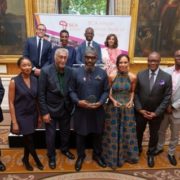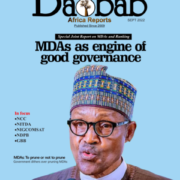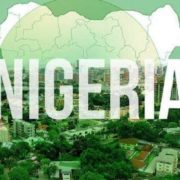African Development Bank (www.afdb.org) President Akinwumi Adesina, has this week in Abidjan, Ivory Coast, pleaded for Africans to embrace technology, and governments to urgently move away from “investing in the jobs of the past, but rather in the jobs of the future. A future that is just around the corner.”
“Coding must be compulsory, at all levels. The currency of the future is going to be coding…We must democratize technology,” said Adesina while addressing a debate entitled: The New Tech Era: Job-killer or Job-creator?
The event was organised by Africa Report and Jeune Afrique as part of the 2019 Mo Ibrahim Governance Week. The debate took place in the Sofitel Hotel in Abidjan, Cote d’Ivoire.
Adesina warned that inability to embrace the tenets of the new economy such as coding would mean that Africa will remain at the fringe of development.
His words: “The people, who control data, will control Africa. Coding must be compulsory, at all levels. The currency of the future is going to be coding,” Adesina said. “Information technology must not be the exclusive privilege of the elite, we must democratize technology,” he added.
Panelists included Pascal Lamy, board Director of the Mo Ibrahim Foundation and past Director-General of the World Trade Organization; Eric Kacou, an Ivorian businessman and co-founder of ESP Solutions; Chioma Agwuegbo, a Nigerian tech specialist and Zyad Liman, publishing director of Afrique Magazine.
In his welcome remarks, Mo Ibrahim urged the panelists to think about ways to address the “tsunami of young people entering the job market.”
In response to that call to action, Kacou insisted on the need for “a change in mindset to move from BBC or Born Before Computers to rethinking education to teach people how to learn and help them solve problems.”
Panellists acknowledged the critical role the tech industry can play in Africa’s economic transformation through the continent’s digitization. However, they agreed on the urgent need to upgrade the skills of the past, to do it fast, and move away from the social fear of technology.
Research has shown that if governments harness the full economic potential of just the internet, Africa could add $300 billion to its GDP by 2025. Also, 70% of all jobs will have an ICT component by 2020.
Opportunities to transform Africa through technology are endless. In agriculture, drones can monitor crops, Artificial Intelligence can speed varietal selection, and the Internet of the Things can control smart irrigation systems. Block chains can also aid food traceability.
“We must grab the opportunities…We must democratize technology. Africa should prepare itself. Digital technologies, including Artificial intelligence, big data analytics, blockchains, 3D printing, are already upon us,” Adesina concluded.
The three-hour interactive session ended with members of the audience calling for accelerated policy reforms and creating an enabling environment for innovative technology to thrive. The issue of data protection, identity protection and fake news and how to turn population into assets, topped discussions.
The African Development Bank has already made big strides in building skills in technology and innovation with its Job for Youth programme. In all, 234,000 new coders and 130 Coding Centres of Excellence are being created for Africa to participate in the supply side of the digital economy. The programme is not restricted to coding. The Bank is working with partners in the private sector, such as Facebook, Google and Microsoft, to build technical literacy and arm people at all educational levels with the skills they will need going forward.
To ensure there is a general reskilling of Africans, the Bank has invested EURO 70 million in a technology park in Senegal, to create a regional cluster of tech businesses in francophone Africa. The tech park is expected to contribute to the diversification of Senegal’s economy, creating 35,000 direct and 105,000 indirect jobs.
Additionally, the Bank has invested in several funds such as the TLcom TIDE Fund, Partech and African Technology Ventures to overcome the challenge of access to finance for tech entrepreneurs.
The Bank has also provided a US$30 million loan to the Rwandan Government to contribute to the innovation economy through the Rwanda Innovation Fund, focused on funding Tech-Enabled SME’s and to develop Rwanda’s entrepreneurial/innovation ecosystem capacity.
The Mo Ibrahim Governance Weekend kicked off in Abidjan on Friday. Adesina is joining Africa’s most influential leaders and thinkers for this event, which celebrates the continent’s leadership, debates issues of critical importance to Africa, and charts the way forward for the region






















